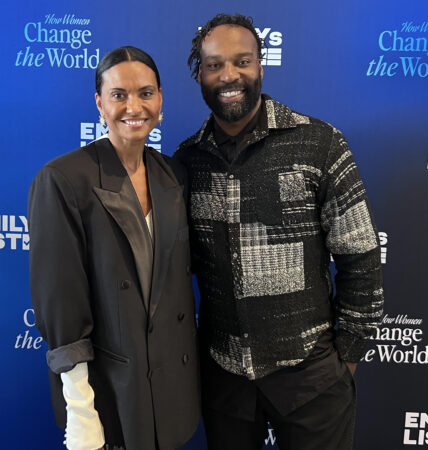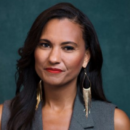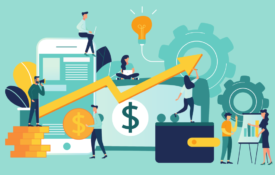For many of us, our education in this game began in childhood, when we were taught to be “good” girls and boys who always did exactly what we were told without question or rebuttal. That people-pleasing programming became amplified by our eventual entry into the professional sphere.
As juniors in our careers, we were taught the nuances of the corporate America system that historically values profit and production over people or purpose. We were taught that no one should ever outwork us, even at the cost of substantial and unsustainable sacrifices. We embraced the all-too-convenient adage, “It’s not personal, it’s business,” as though any move made in the blind service of business would absolve us of the painful ripples that can spring forth from worshipping a system that doesn’t consider its people “personal.” Our work Bible was The Art of War, and we were its business-casual-clad prophets. We never stopped learning how to play the game, and we wrote out our notes on our bones.
As expert rule followers, we became the system and, soon, we had mastered it. We dominated it. We grew to such greatness within those spaces that, without realizing it, we had fundamentally changed the game.
And the game got mad.
You see, this game was not designed for impactful, inclusive, or equitable growth for all players. It was not even set up for the possibility of growth for many. It was set up to serve a select few, who would then pick a select few others to come alongside them, typically at the expense of the majority of individuals who worked day in and day out in less prominent positions to uphold the system and ensure its success. We may not have admitted that truth to ourselves at the time, but the power of it also propelled us, offering an elusive but ideal outcome that could be achieved if only we were willing to work harder than anyone else around us for it.
As we continued to follow the rules of this game, we began to discover—often accidentally—new pathways and opportunities to win. The skills and mastery we’d gained as expert rule followers gave us fresh eyes to see new ways to innovate and elevate the game from within, without the game’s awareness. We became so proficient in how we played that we unknowingly began to alter the game’s algorithm, unsettling those who originally created it.
Similar to unlocking cheat codes and secret levels in a video game, we’d discovered new possibilities for progress within the system, much to the chagrin of those in control of it.They resented our changes, despite the fact that they, too, would benefit from the new levels we’d uncovered, simply because they felt they no longer knew how to play their own game.
Still, those who owned the game maintained complete power over it. They retained the ability to eliminate players, create new obstacles, and manipulate the rules at will. Unfortunately, many of us learned this the hard way. As we challenged the system that we had mastered to rise to new levels, we faced resistance, and those who threatened the status quo were often removed from the equation.
Despite these challenges, we—the A+ rule followers who were transforming into passionate disruptors—did not give up. We became driven by our shared empathy, our vision, and our desire to enact positive change. We allowed the internal fire that had made each of us an expert within the game to alchemize into an optimistic rebelliousness outside of it. We sought to operationalize the “good trouble” and create more sustainable systems that benefit everyone, not just the select few. If we couldn’t meaningfully change the rules from within, our goal was to combine our creativity, resources, insights, and influence to generate a net-new game—one that is truly inclusive, equitable, and ripe for any and all players to thrive in.

Christine Simmons with former professional basketball player Baron Davis
One prime example of a powerfully positive system breaker can be witnessed in my dear friend, basketball legend and thriving entrepreneur Baron Davis. After mastering his unique skill set, knowledge base, and power position as an iconic NBA All-Star, he chose to think outside of the game and take a risk to uplevel it for those who were still inside.
Through numerous business ventures and community-impact initiatives, Baron has since empowered countless current and aspiring players with invaluable strategic resources that weren’t as accessible during his tenure on the court.
In a recent talk about his epic journey, he stated that he is “a collector of people who focuses more on the memories his life has created for others.” Like us, Baron aims to leverage his position as a victor of the game to meaningfully disrupt it with a more equitable open code that anybody can access and have the potential to win.
The truth is that a system doesn’t have to be bad to be broken.
Those leaders we admire within and beyond the game only entered it because they really believed the best of it. They saw its potential and bought into all the promises that were made to them about it. They played by its rules until they won by its measurement. But the inherent empathy and strategic solutioning of the disruptor revealed to them the opportunities to improve the game along the way. To expand its net. To increase its impact. To uplift its community.

Christine Simmons, 2016 LA Sparks WNBA championship (then team president and COO)
While those KPIs may be more difficult to validate in quarterly projections or investor reports (especially in non progressive geographies), they do have the potential to actually change the world as we know it.
When recovering rule followers transform into unapologetic system breakers, profound change becomes inevitable.
When proven and passionate leaders boldly risk their prominence to challenge the status quo, disrupt traditional systems, speak truth to power, and create new pathways toward sustainable, empowering, and inclusive growth for all, the axis of business shifts, the playing field broadens, and the purpose of our work becomes crystallized. In that shift, we move away from wondering how to feed ourselves, our families, our teams, and our communities with just our one slice of pie, and into a new reality in which the number of pies available is actually limitless.
System breakers want to prove that everybody can have as many pies as they want. In fact, with this kind of systemic change, we can create our own damn pie factories that churn out every imaginable flavor and can unfailingly feed all appetites, even those who initially created the exclusionary systems that we seek to replace with new paradigms that foster collaboration, empowerment, and prosperity for all—regardless of one’s background or starting point.
That is what it means to be an unapologetic system breaker, and that is exactly what those who are looking to us as leaders need from us now.
Christine Simmons is an accomplished COO, business executive, and board director with 20+ years’ experience devising strategy and leading transformational change for iconic B2B/B2C leaders: Academy of Motion Picture Arts and Sciences, Los Angeles Sparks, NBCUniversal Inc., The Walt Disney Company, and Magic Johnson Enterprises.













































